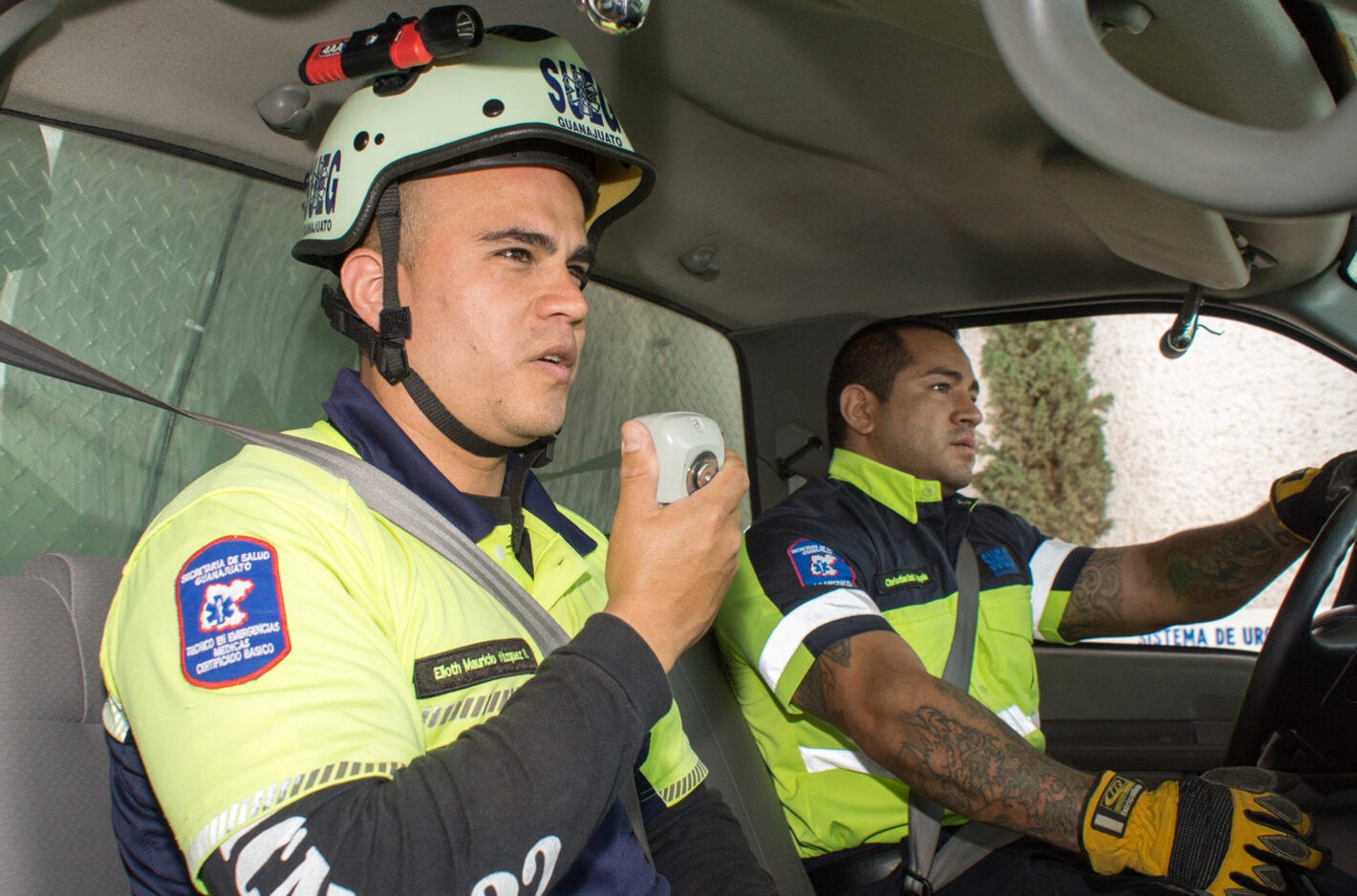
Improving emergency services can help prevent up to 50% of deaths caused by road traffic injuries, which claim more than 150,000 lives in the Americas each year.
Washington, DC, May 18, 2023 (PAHO)- A publication released today by the Pan American Health Organization (PAHO) seeks to help countries in the Americas strengthen emergency trauma services to prevent road traffic injuries from unnecessarily killing or permanently disabling people.
A well-organized emergency care system has the potential to prevent nearly 50% of deaths in severely injured people and improve treatment outcome for those who survive, according to evidence compiled in the report Strengthening trauma emergency care in the Region of the Americas.
Currently, more than 150,000 people in the Americas lose their lives annually on the road and thousands more suffer non-fatal injuries, though many are left with permanent disabilities. Road traffic injuries are the leading cause of death for children and young people between the ages of 5 and 29. Nearly half of traffic fatalities are among the most vulnerable road users: motorcyclists (23%), pedestrians (22%) and cyclists (3%).
"The high number of people who die each year on the road due to causes that could be avoided through policies that promote safe mobility is a cause for concern," said PAHO Director, Dr. Jarbas Barbosa. "But when an accident occurs, health systems must be prepared to provide adequate care in a timely manner to mitigate their effects," he added.
Providing adequate and timely care is part of PAHO's Safe Transit System approach, which emphasizes shared responsibility among those who design, build, manage, and use roads as well as motor vehicles to prevent deaths and serious injuries.
"Strengthening emergency care is highly effective and does not involve investing a lot of money or putting the health system in debt; simple interventions such as having a single number for emergencies can have a dramatic effect on mortality," said PAHO's Regional Advisor on Road Safety and Unintentional Injury Prevention, Ricardo Pérez-Núñez. "With specifically designated essential emergency functions and personnel, processes in place and minimum resources, it is possible to protect health, avoid serious consequences and save lives," he added.
Published as part of the 7th United Nations Road Safety Week, which takes place from May 15-21, 2023, the report details the essential functions and existing gaps in emergency care in the region, ranging from system activation, on-scene care, transfer of injured persons to health units and care in hospital facilities.
In addition, it makes a series of general recommendations to strengthen emergency services, including for sustainable financing policy design, effective governance and emergency care universal access, creation or designation of a responsible office within ministries of health, and conducting a analysis pre-hospital and hospital emergency care situations.
The recommendations also include advise to strengthen the legal and regulatory framework for emergency care; effective access to pre-hospital emergency care and specialized medical care in hospital centers 24 hours a day, seven days a week; training, certification and professionalization of human resources in the clinical care of trauma emergencies; and the design and implementation of emergency care protocols along with the collection of strategic information, among others.
The PAHO publication seeks to help decision-makers improve emergency care and reduce road traffic deaths and injuries by at least 50% by 2030, as set out by countries at the United Nations General Assembly as part of the Second Decade of Action for Road Safety 2021-2030 and the Sustainable Development Goals (SDGs).



